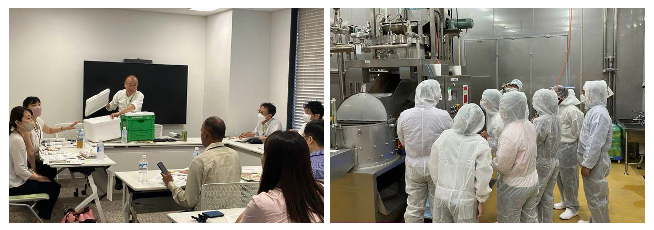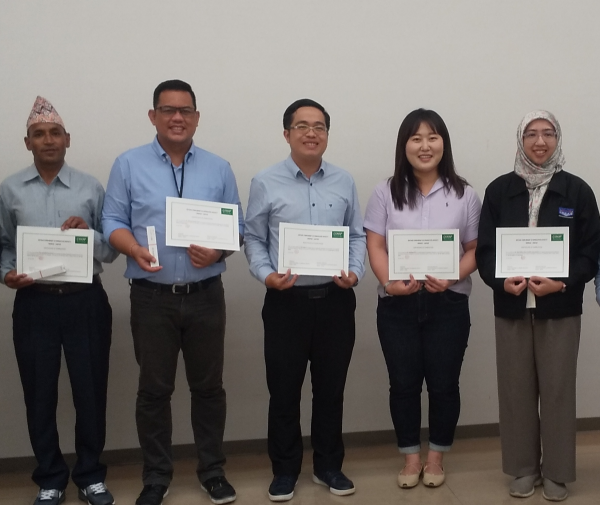The ICA Committee on Consumer Cooperation for Asia and the Pacific (ICA-AP Consumer Committee) and Japanese Consumers’ Co-operative Union (JCCU) held the ICA-AP Training Program for Managers of Consumer Coops 2023 from 19 to 30 July in Japan. Five cooperative managers from Nepal, Philippines, Vietnam, Korea, and Malaysia participated in lectures and coop tours at the headquarters, stores, factories, and logistic centres of Japanese consumer coops.
The training program has been held every year since 1991 except for 2020 to 2022 due to the Covid-19 pandemic. Under the theme, “How Consumer Co-ops Survive in the New Era~Rediscover the Advantages of Consumer Co-ops,” the five trainees tried to find the strong points of consumer co-ops and how they are able to run their businesses and activities sustainably in the post-pandemic period. They also tried to get hints for overcoming the challenges their cooperatives are currently facing.
During the first half of the program, the trainees visited the JCCU headquarters at Shibuya, Tokyo, and that of the Co-opdeli Group, the largest consumer co-op business federation in Japan. JCCU staff gave lectures on the overview of Japanese Consumer Co-ops, the CO・OP Brand products, environmental sustainability policy, and logistic systems. At the headquarters of Co-opdeli, lectures on its home delivery service and store business were conducted. The trainees also visited its co-op store and a food factory where the ready-to-eat food and side dishes of co-op stores are manufactured.

During the second half of the program, they visited Miyagi Co-op in Sendai, Miyagi, one of the primary consumer co-ops in the Tohoku Region. They learned about the overview of Miyagi Co-op, its IT and marketing strategy, the DX CO・OP Project, member activities, environmental activities, and the strategic policy of its store. They also visited the FamilyMart + COOP store and the newly renovated co-op store to explore the new store concept and strategy. A tour of the logistics centre was also conducted.

At the end of the program, the trainees gave a presentation on what they learned, what kinds of hints they got to overcome their challenges and the advantages of consumer co-ops they found during the program. The advantages of consumer co-ops they presented were consumer co-ops’ community-driven approach, their activities with consumer members, the implementation of cutting-edge marketing strategies and technology, a home delivery system unique to Japanese consumer co-ops, and their environmentally friendly businesses and activities. Post the presentations, the certification of the completion of the training program was presented to them and they promised to bring back and share their experiences and learnings gained during this training program to their co-ops.



